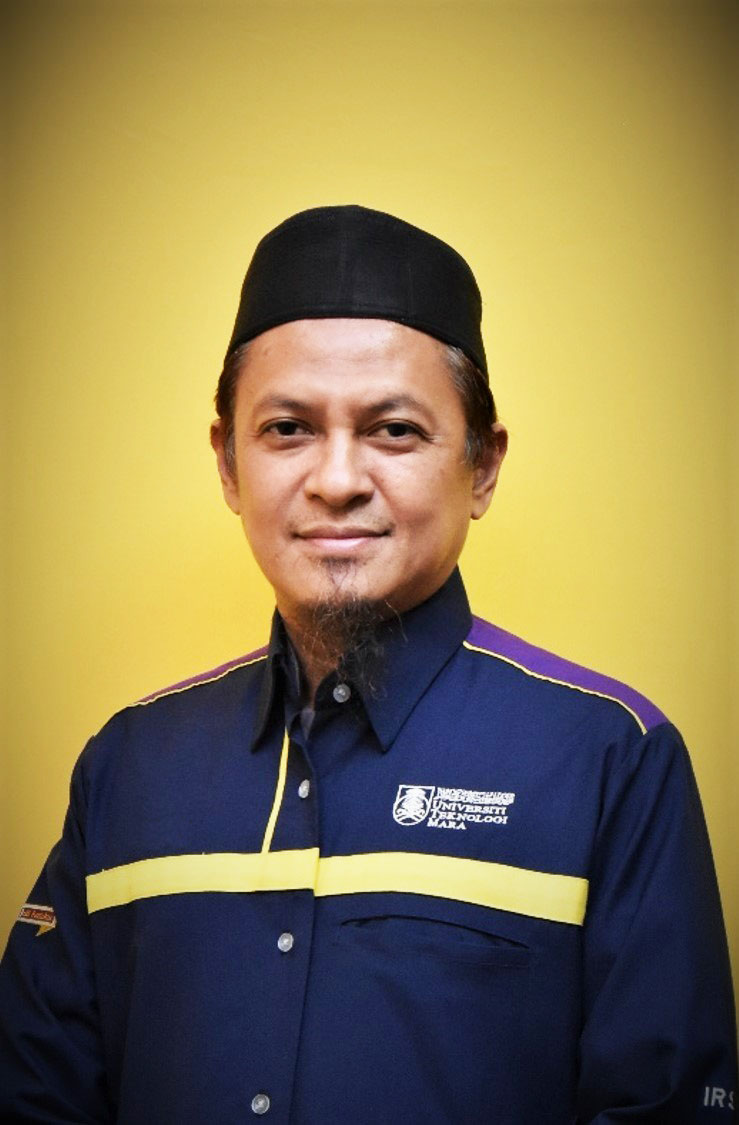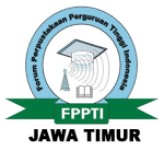Status of local knowledge and information literacy among The Minangkabau Community in Indonesia
Background of the study: The topics of local knowledge and information literacy have tremendously been discussed in research on information literacy and local knowledge around the world, including in Indonesia. However, these aspects are still under-researched particularly when it comes to the issue of the status local knowledge and that is related to information literacy. Based on this main gap, this paper presents a study that examined local knowledge and information literacy, to specifically address the issue.
Purpose: To identify the status of local knowledge and information literacy among the Minangkabau Community in Agam district, Indonesia.
Method: A quantitative approach by using a survey was conducted involving 384 Minangkabau communities in Agam district, Indonesia selected using a random sampling technique
Findings: The findings reveal a significant value of 0.000 (p0.05), indicating that there is a substantial positive link between tacit and explicit knowledge and information literacy. Furthermore, the Pearson correlation coefficient value shows a value of 0.712 which is in the range of 0.60 – 0.799 so it is in a strong category. From the results, the analysis shows that the Minangkabau community has positive information literacy and the local knowledge processes variable can encourage activities of local knowledge in the community, special in Agam district, Indonesia.
Conclusion: Status of local knowledge cover combination of knowledge such as from tacit and explicit will support the Minangkabau community to sustain their local knowledge with accurate information seeking strategies
Downloads
Introduction
Local Knowledge (LK) is a form of environmental knowledge that is prominent in the public life of a city or area. So, in terms of a given region and society, LK is a value system carried out by careful interaction with the environment. All types of LK, when internalised, practised, taught, and handed on from generation to generation, produce a pattern of human behaviour towards other people. LK is still stored in a communal society in every tribe in Indonesia. LK is the distinct knowledge of a specific community or culture that has evolved as a result of an ongoing reciprocal relationship between the community and the environment(Wheeler & Root-Bernstein, 2020).
According to Gadgil, Berkes, and Folke, despite the variety of indigenous and LK systems across peoples and cultures, there are some common characteristics. For example, knowledge often combines culture, practice, and beliefs and arises from a deep relationship with the environment(Trigos-Carrillo, 2020). Makino and Delios (1996) define LK as "a broad body of knowledge that includes information and know-how about a specific region's economy, politics, culture, local demands and tastes, infrastructure, resources, and other factors"(Loch & Riechers, 2021).
LK may be characterised as a way of life and knowledge, as well as many living tactics used by the local community in response to various difficulties and requirements. This encompasses how people see and measure their environment, as well as how they solve issues and authenticate new knowledge. It encompasses the processes through which knowledge is generated, stored, applied, and transmitted to others. LK is often shown as separate from expert or scientific knowledge, which is widely assumed to be codified, unambiguous, logical, systematised, placeless, non-contextual, and hence transportable.(Saputra et al., 2023). That cultures are persistent, that is, past cultures continue to influence current and future societies' cultures and material lives. As a result, LK in communities evolves both historically and in the present(Moshenska, 2018). Almost all information is embedded in local knowledge as the manifestation of a population's local identity, notwithstanding the contemporary globalization of society and the economy(Lucia et al., 2020).
The Sustainable Development Goals (SDGs) are very significant in community planning. The SDGs' guiding concepts are as follows: Environmental sustainability, social justice, economic efficiency, and cultural compatibility with society are all requirements for progress(Hosseinnia & Shoja, 2017). The SDGs promote alternative individual actions; maintain economic growth while reducing socio-political inequality and conflict, and they take advantage of science and expertise to help with this transition(Marouli, 2021). The SDGs place a strong emphasis on local solutions for achieving global sustainability, particularly those based on accumulated ecological and regional knowledge(Brown et al., 2020).
LK refers to specialised knowledge that is unique to a certain culture or civilisation. This is also known as tribal knowledge, people's knowledge, traditional knowledge understanding, or traditional research. LK is local community knowledge that consists of a collection of acquired experiences and gives information demonstrating the behavioural traits of the local community or local culture. LK includes indigenous, traditional, and inherent knowledge relating to the way of life of local rural people(Simpson & Mendenhall, 2022). So, in terms of a specific location and community, LK is a value system that is carried out through careful interaction with the environment. When internalised, practised, taught, and handed on from generation to generation, all types of LK build a pattern of human behaviour towards other people.
LK in the community is also very dynamic, hidden (tacit), and only owned by certain people or groups, and the transfer process is carried out orally. Although this is very possible the occurrence of deviations, reduction in the value of information, and even loss of knowledge (information lost) in the transfer process. This greatly affects the survival of the group in the future and has an impact on group identity, not least in the Minangkabau community in Indonesia. As a result, LK must be managed, maintained, conserved, shared, and developed; in other words, LK must be transferred, which is referred to as knowledge transfer.
One of the forums for managing, maintaining, preserving, sharing, and developing LK is part of the knowledge transfer carried out through community groups. This LK can be in the form of derived knowledge from parents, knowledge that comes from personal experience, and knowledge that comes from interactions within groups and external parties. Furthermore, Nonaka and Takeuchi (1995) provide the SECI model, which includes four forms of knowledge transfer: socialisation, externalisation, combination, and internalisation(Bibi et al., 2021). Tacit knowledge is formed as a mental model and technical abilities through socialization(Işık et al., 2021);(Wibowo et al., 2021). Through imitation, practice, and observation, it is possible to acquire tacit knowledge. The process of making implicit knowledge explicit through the use of metaphors, analogies, hypotheses, or models is known as externalization. The combination is the process of integrating systematic concepts from many explicit information sources into knowledge systems. Explicit knowledge is information that is shared orally or through written materials, meetings, emails, or phone calls.
Individuals depend on information to function in society, hence information literacy (IL) is a necessary precondition for preserving local knowledge as a cultural heritage. The result is that various measures must be implemented to promote the Minangkabau community's learning of information literacy in local knowledge management. The concerns of information
Bibi, G., Padhi, M., & Dash, S. S. (2021). Theoretical necessity for rethinking knowledge in knowledge management literature. Knowledge Management Research and Practice, 19(3), 396–407. https://doi.org/10.1080/14778238.2020.1774433
Blackstock, C. (2020). First Nations Children Count: Enveloping Quantitative Research in an Indigenous Envelope. First Peoples Child & Family Review, 4(2), 135–143. https://doi.org/10.7202/1069337ar
Brown, L. D., Atapattu, S., Stull, V. J., Calderón, C. I., Huambachano, M., Houénou, M. J. P., Snider, A., & Monzón, A. (2020). From a three-legged stool to a three-dimensional world: Integrating rights, gender and indigenous knowledge into sustainability practice and law. Sustainability (Switzerland), 12(22), 1–24. https://doi.org/10.3390/su12229521
de Castro Peixoto, L., Barbosa, R. R., & de Faria, A. F. (2022). Management of Regional Knowledge: Knowledge Flows Among University, Industry, and Government. Journal of the Knowledge Economy, 13(1), 92–110. https://doi.org/10.1007/s13132-020-00702-9
De Lucia, C., Pazienza, P., Balena, P., & Caporale, D. (2020). Exploring local knowledge and socio-economic factors for touristic attractiveness and sustainability. International Journal of Tourism Research, 22(1), 81–99. https://doi.org/10.1002/jtr.2320
Dipetso, C. M., & Moahi, K. H. (2019). Information Literacy Skills of High School Students in Botswana. School Libraries Worldwide, 25(1), 99–115. https://doi.org/10.29173/slw8237
Head, A. J., Fister, B., & MacMillan, M. (2019). Information Literacy in the Age of Algorithms-Student experiences with news and information, and the need for change. Information Literacy in the Age of Algorithms. https://eric.ed.gov/?id=ED605109
Hosseinnia, E., & Shoja, B. (2017). The Role of Handicrafts in the Sustainable Development of Rural Tourism with an Emphasis on Indigenous Knowledge. International Journal of Geography and Geology, 6(1), 1–7. https://doi.org/10.18488/journal.10/2017.6.1/10.1.1.7
Işık, C., Aydın, E., Dogru, T., Rehman, A., Alvarado, R., Ahmad, M., & Irfan, M. (2021). The nexus between team culture, innovative work behaviour and tacit knowledge sharing: Theory and evidence. Sustainability (Switzerland), 13(8). https://doi.org/10.3390/su13084333
Keshavarz, H. (2021). Personality factors and knowledge sharing behavior in information services: the mediating role of information literacy competencies. VINE Journal of Information and Knowledge Management Systems, 52(2), 186-204. https://doi.org/10.1108/VJIKMS-05-2020-0095
Kurbanoğlu, S., Å piranec, S., Leena, M., Esther, H., Mizrachi, D., & Roy, L. (2019). Information Literacy in Everyday Life: 6th European Conference ECIL 2918 Oulu, Finland, September 24-27, 2018. Revised Selected Papers. In Ecil 2018, (Vol. 989, pp. 462–471).
Leung, B. T. H., Xie, J., Geng, L., & Pun, P. N. I. (2019). Transferring Information Literacy Practices. In Transferring Information Literacy Practices. https://doi.org/10.1007/978-981-13-7743-3
Loch, T. K., & Riechers, M. (2021). Integrating indigenous and local knowledge in management and research on coastal ecosystems in the Global South: A literature review. OCEAN & COASTAL MANAGEMENT, 212. https://doi.org/10.1016/j.ocecoaman.2021.105821
Marouli, C. (2021). Sustainability education for the future? Challenges and implications for education and pedagogy in the 21st century. Sustainability (Switzerland), 13(5), 1–15. https://doi.org/10.3390/su13052901
Moshenska, G. (2018). Epilogue: Some Reflections on Community Archaeology and Heritage. In SpringerBriefs in Archaeology, 143-146. https://doi.org/10.1007/978-3-319-68652-3_10
Setten, G., & Lein, H. (2019). We draw on what we know anyway: The meaning and role of local knowledge in natural hazard management. International Journal of Disaster Risk Reduction, 38(February), 101184. https://doi.org/10.1016/j.ijdrr.2019.101184
Simpson, J. E., & Mendenhall, T. J. (2022). Community-based participatory research with Indigenous youth: a critical review of literature. AlterNative: An International Journal of Indigenous Peoples 18(1), 192–202. https://doi.org/10.1177/11771801221089033
Sufo Kankeu, R., Tsayem Demaze, M., Krott, M., Sonwa, D. J., & Ongolo, S. (2020). Reprint of "Governing knowledge transfer for deforestation monitoring: Insights from REDD+ projects in the Congo Basin region.” Forest Policy and Economics, 114. https://doi.org/10.1016/j.forpol.2020.102105
Trigos-Carrillo, L. (2020). Community cultural wealth and literacy capital in Latin American communities. English Teaching, 19(1), 3–19. https://doi.org/10.1108/ETPC-05-2019-0071
Wheeler, H. C., & Root-Bernstein, M. (2020). Informing decision-making with Indigenous and local knowledge and science. Journal of Applied Ecology, 57(9), 1634–1643. https://doi.org/10.1111/1365-2664.13734
Wibowo, A., Setyawati, A., Masyithoh, G., & Rahayu, E. S. (2021). Local wisdom in the preservation and diversification of medicinal plant use (A case study of the Lawu mountainside community on the island of Java, Indonesia). IOP Conference Series: Earth and Environmental Science, 905(1). https://doi.org/10.1088/1755-1315/905/1/012025
Zaim, H., Muhammed, S., & Tarim, M. (2019). Relationship between knowledge management processes and performance: critical role of knowledge utilization in organizations. Knowledge Management Research and Practice, 17(1), 24–38. https://doi.org/10.1080/14778238.2018.1538669
Zeeshan, M., Siddique, N., & Idrees, H. (2020). Measuring Information literacy skills of graduate students of Lahore University of Management Sciences (LUMS). Library Philosophy and Practice, 2020. https://digitalcommons.unl.edu/libphilprac/4082/
Copyright (c) 2024 Elva Rahmah, Shamila Mohamed Shuhidan, Wan Aida Wan Yahaya

This work is licensed under a Creative Commons Attribution-ShareAlike 4.0 International License.
Record and Library Journal by Unair is licensed under a Creative Commons Attribution-ShareAlike 4.0 International License.
1. The journal allows the author to hold the copyright of the article without restrictions.
2. The journal allows the author(s) to retain publishing rights without restrictions
3. The legal formal aspect of journal publication accessibility refers to Creative Commons Attribution Share-Alike (CC BY-SA).
4. The Creative Commons Attribution Share-Alike (CC BY-SA) license allows re-distribution and re-use of a licensed work on the conditions that the creator is appropriately credited and that any derivative work is made available under "the same, similar or a compatible license”. Other than the conditions mentioned above, the editorial board is not responsible for copyright violation.




























